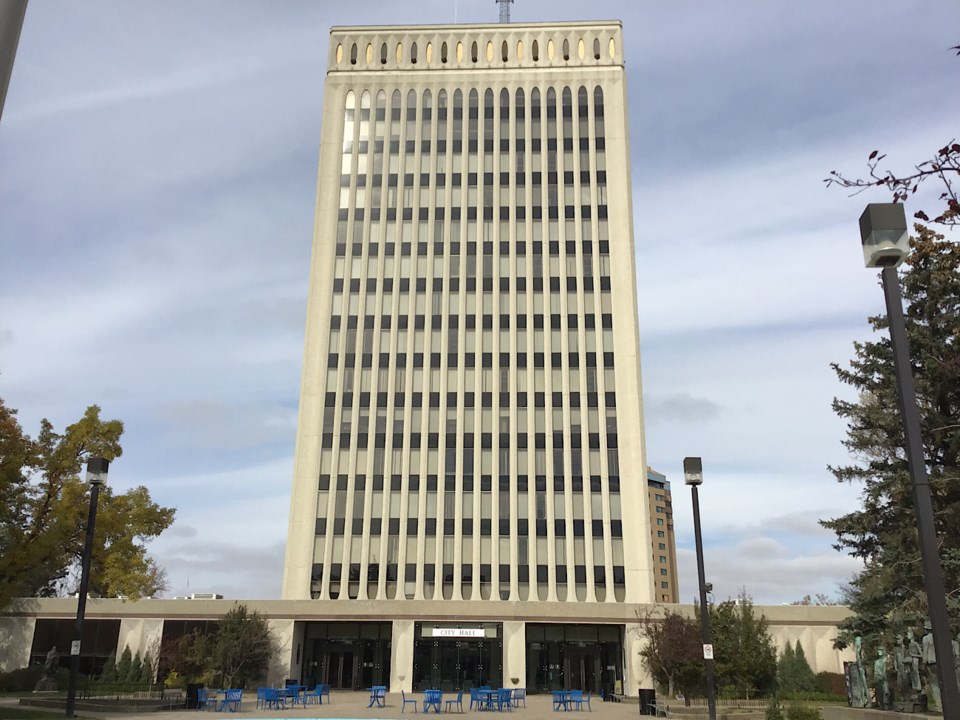REGINA - It has been announced that a temporary winter shelter for people experiencing houselessness issues will be open in Regina as of Jan. 30.
According to a news release Wednesday, the temporary shelter will have 40 spaces and will include professional wrap-around services to support shelter residents on-site.
The location is at The Nest Health Centre, 2400 13th Avenue, in the building that used to house the YMCA. The space is being leased through The Nest Health Centre by the City of Regina, and the shelter will be managed and operated by Regina Treaty/Status Indian Services.
The initiative is a collaboration of Government of Saskatchewan, City of Regina, Regina Treaty/Status Indian Services (RT/SIS) and The Nest Health Centre. The province is providing $400,000 in operational funding for the shelter to Regina Treaty/Status Indian Services.
According to Regina City Manager Niki Anderson, the city contribution is $500,000 which includes the cost of leasing the building and also for some upgrades. The City of Regina is providing furniture and supplies and is coordinating some minor renovations to the main floor to make room for the shelter space.
The shelter is being launched, according to the city's news release, in response to an immediate need. The city states existing shelters face capacity issues, and this will fill the need for a short-term emergency shelter while longer-term solutions are explored.
“We've been working on this since August,” said Mayor Sandra Masters in speaking to reporters Wednesday at City Hall. "There have been a total of ten properties that have been investigated or negotiated on as we have been trying to get it into place, clearly for the cold seasons."
Masters pointed to RT/SIS being able to provide wraparound services and also pointed to the added benefit of partnerships with private business. "It's (a) pretty significant relationship that has been developed and we're enormously pleased that we actually have a solution, it's been a bit of a frustrating process."
Mayor Masters also acknowledged the difficulties in finding commercial space for a shelter, and expressed gratitude to the owners of The Nest for stepping up to the plate to offer their space.
“As a healthcare facility our mission is to improve the wellness of our patients. This initiative allows us to leverage our existing space as we continue to revitalize the building”, says Director of Communications for The Nest, Neha Jain, in a news release. “Making our space available affects multiple touchpoints in the healthcare system and is an example of an upstream solution. This initiative will help alleviate pressure across the system, support and stabilize some of our most vulnerable patients, and also allows our physicians to provide on-site medical care to those in need within the shelter.”
“RT/SIS, as an agency, works year-round to address many issues that are experienced by our most vulnerable who live in the city of Regina,” said Erica Beaudin, Executive Director of RT/SIS, in a statement. “We are committed to our meaningful and continued partnerships with the Government of Saskatchewan and the City of Regina. Further, we are very excited about our partnership with The Nest Health Centre as they take on their role as contributing community members by their professional service.”
“The province is pleased to be a part of the temporary winter shelter, as we continue to work together on supporting vulnerable people in Regina,” said Minister of Social Services Gene Makowsky in a statement. “The operating funding will provide access to 24-hour shelter spaces, programming and offer three daily meals in a safe and supportive environment.”
Since November, the City of Regina had been operating a warming bus for those in need during the cold weather. That service will be paused once the new shelter opens. The indication from the City is that a warming bus was not ideal and it also costly -- Masters said it cost somewhere around $3,700 a night - but it was effective in terms of warming measures and getting people off the streets during the cold weather.
Masters said what RT/SIS could provide in terms of wraparound supports, health care, counselling, cultural ceremony and connection "is far preferred to keeping people safe on a bus."
City Manager Anderson told reporters the emergency shelter should "exceed by far anything the warming bus could do." The warming bus had on average 14 persons per night on it. Anderson expected the new emergency shelter should be able to meet the demand.
"Knowing that there's 40 beds at the shelter, we're predicting we won't need the warming bus anymore, but as always we will keep our eyes on community needs."
The shelter is a temporary one that will operate until the end of April. As for the future, Masters told reporters the parties involved are discussing how to come up with a more permanent emergency shelter. "We know it's temporary this year, but how do we not do temporary again," said Masters.






